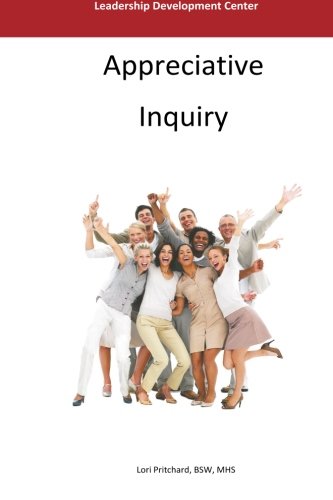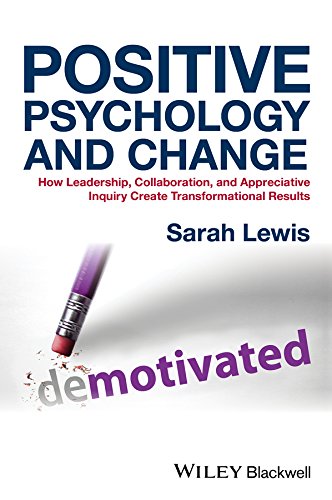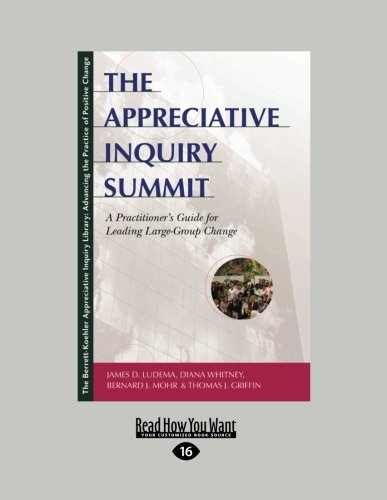Appreciative Inquiry
$3.99
Organizations can be thought of as living entities comprised of individuals working toward a common goal. Appreciative Inquiry has the ability to change an entire organization by changing its people. Through positive questioning employees will be directed to move in a positive direction. Recognizing the strengths and values of what works, as opposed to what is wrong, will transform individuals thereby transforming organizations. Appreciative Inquiry is a shift from looking at problems and deficiencies and instead focusing on strengths and successes. It is a tool for change, and it will strengthen relationships throughout an organization. Appreciative inquiry focuses on finding…
Product Description
Organizations can be thought of as living entities comprised of individuals working toward a common goal. Appreciative Inquiry has the ability to change an entire organization by changing its people. Through positive questioning employees will be directed to move in a positive direction. Recognizing the strengths and values of what works, as opposed to what is wrong, will transform individuals thereby transforming organizations. Appreciative Inquiry is a shift from looking at problems and deficiencies and instead focusing on strengths and successes. It is a tool for change, and it will strengthen relationships throughout an organization. Appreciative inquiry focuses on finding the best in people and how they use it to function in their work and everyday life. Through appreciative inquiry, an employer uses the art of asking questions and opinions to strengthen the system as a whole, creating a more positive environment and heightening employee potential. This approach is designed to focus less on negativity and criticism, and utilize personal design and encourage discovery.
$3.99Buy On Amazon
Additional information
| Publisher | CreateSpace Independent Publishing Platform |
|---|
You must be logged in to post a review.





Reviews
There are no reviews yet.